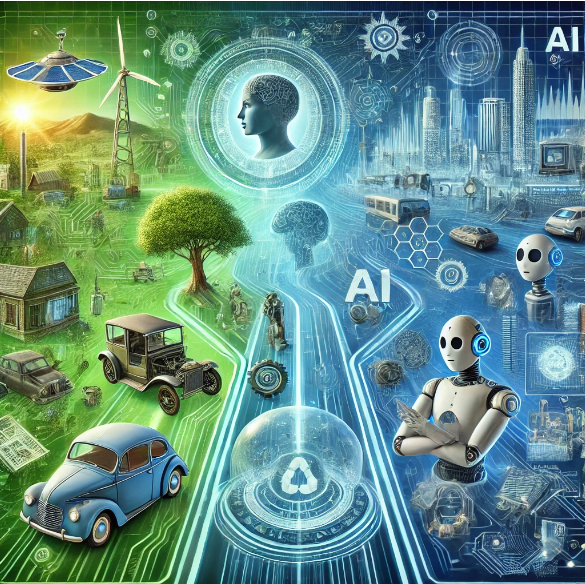
Artificial intelligence (AI) has rapidly evolved from theoretical concepts into powerful, practical tools that redefine our everyday lives. Initially, AI’s development was modest, comprising basic machine learning algorithms and simple robotics aimed at performing repetitive tasks. Over time, however, breakthroughs in computational power, big data, and neural networks have paved the way for AI applications across diverse fields—from healthcare and education to transportation and finance. These advancements have redefined industries, optimizing processes, enhancing accuracy, and transforming decision-making dynamics.
One of AI’s remarkable advantages is its ability to analyze vast amounts of data, offering insights that human analysis would require years to achieve. In healthcare, for example, AI is revolutionizing diagnostics and personalized treatment. Machine learning models analyze medical records to predict diseases, and robotic surgery aids precision, ensuring better outcomes for patients. Similarly, autonomous systems in industries like transportation are helping reduce human error, improve safety, and make daily life more efficient through smart systems such as AI-driven traffic control and autonomous vehicles.
AI’s contribution to environmental sustainability is also noteworthy. With smart city infrastructure powered by AI, energy usage can be optimized, waste reduced, and resources managed efficiently. AI systems monitor climate data to predict patterns, helping governments and organizations implement better environmental policies. These strides demonstrate AI’s role in securing our planet’s future, addressing challenges that range from pollution control to wildlife conservation.
However, with the rapid rise of AI come legitimate concerns about privacy, security, and employment. The evolution of AI raises ethical questions about how personal data is used and protected. Nevertheless, a proactive approach to AI ethics and regulation is emerging, aiming to ensure that AI respects privacy while maintaining transparency in its operations. Organizations and governments worldwide are developing robust frameworks to safeguard user data, secure AI systems, and create a foundation for responsible innovation.
Looking ahead, AI holds the promise of an even more innovative and secure future. Quantum computing, AI-enhanced robotics, and sophisticated virtual assistants are just the beginning of the next technological era. We can expect AI to evolve into a collaborative partner for humans, assisting in scientific research, supporting mental health, and even designing solutions for global issues like food security and natural disaster response. The future lies in creating an inclusive AI ecosystem that values transparency, accountability, and shared prosperity. As we continue to shape AI responsibly, its evolution will fuel a future marked by security, innovation, and sustainable growth.
–PRADHAN CHINNAPPA






